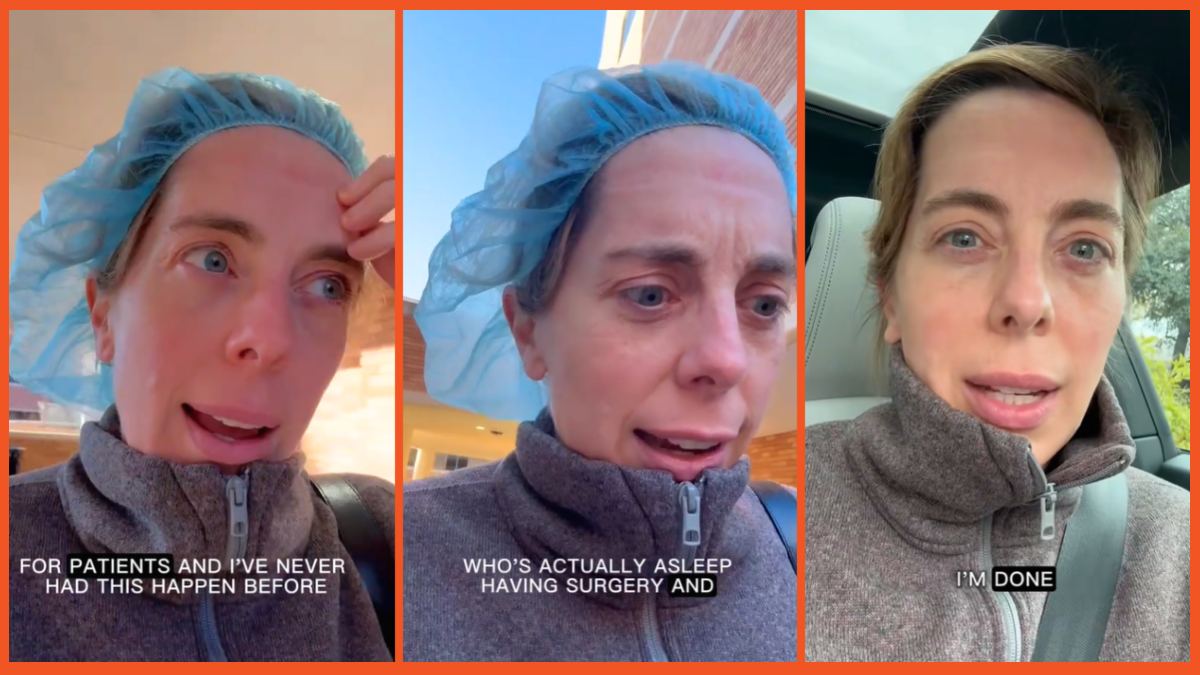Judging from their public actions alone, United Healthcare learned peanuts from their CEO’s murder and the American people’s subsequent reaction. That said, by listening to individual patients’ stories, we can get a better purview of how these companies have forsaken any humaneness to embrace the role of countless narratives’ villains.
In these stories, where the villainous insurers deny vital procedures in the name of profit, one tends to forget the people who are often seen as the unnamed secondary characters: the healthcare providers who must frequently plead their patients’ cases.
Not all doctors are built the same. However, the ones who embarked on this career path motivated and dead-set on helping people can also suffer emotionally when, every step of the way, the faceless hand of corporate greed tries to thwart their ability to treat their patients as efficiently as possible.
We may feel disheartened every time we hear of how businesses like United Healthcare care nothing about human wellbeing so, it’s important to be reminded that some haven’t given up the fight against this avaricious villainy. Enter this story’s hero: Dr. Elisabeth Potter, a surgeon based in Texas, who’s admirably vocal on social media about defending her patients’ rights and keeping people informed.
United missed the opportunity for some end-of-the-year introspection
Dr. Elisabeth Potter was performing a bilateral DIEP flap surgery on a patient with breast cancer when United Healthcare decided this was an opportune moment to make sure whether there was any need for the patient to be officially admitted and stay overnight. While the employee who called may (somehow) not have known the surgery was ongoing, one cannot even say this counts as “last minute.”
By then, Dr. Potter had certainly dealt with more than her fair share of ruthless insurance practices, but, even for her, this incident was a first. It gets to the point of absurdity when a surgeon has to scrub out while her patient is on the operating table under anesthesia to defend their rights to a United employee. This, to the understandably frustrated healthcare practitioner, is more proof that “insurance just keeps getting worse.” “United Healthcare didn’t learn anything? Really? I’m so shocked,” one netizen commented.
In a video posted a few days later, the surgeon thanked everyone who took the time to listen to her grievances, revealing that the cruelly bizarre moment “was a turning point for” her and she’s “done being quiet about what’s going on in healthcare.” But, by now, we should know how powerful corporations feel about any individual who speaks out against them and threatens their already unfavorable reputation.
Although on the first page of the United attorneys’ letter one could read “Confidential – Not for Publication or Attribution” highlighted in bold, Dr. Elisabeth was not to be intimated into silence. Not only did she post a public response to the letter, but she also posted the document’s contents in its entirety. The words, the tone, the gaslighting, it all speaks for itself.
The lawyers may not know this – if they did not care to do some simple research – but Dr. Potter was treating a patient with breast cancer and the procedure was a bilateral DIEP flap surgery. “Observation stay,” as United wanted is only expected for minor procedures. Well, a mastectomy with flap-based reconstruction is a complex surgery that usually requires inpatient care for at least a night. United Healthcare’s problem here, in my humble opinion, is that billing for inpatient versus observatory stays is different and has different coverage. This is a company that jumps at every opportunity to increase its bottom line, too often at the expense of its clients.
As the surgeon says at the end of her response video: “Although it is a bit intimidating to have a company like United send a letter like this to me, I know where I stand. I’m a woman taking care of women who are affected by breast cancer. I know that I do that with all of my heart and in a way that I can be proud of. I spoke up when I needed to, and I’ll continue speaking up.”
True to herself, this practitioner has not been silent on the many issues she finds with the system. If one peruses her TikTok or Instagram profiles for a mere few minutes, there can be no doubt Dr. Potter cares deeply about her patients and wants to ensure the best options for them. In addition, she strives to guarantee those under her care are informed about the reality of the system and all their options.
Being a doctor can be difficult enough as part of the job description (and the wider system) can turn the effort to abide by the best possible treatment plan into a Kafkaesque nightmare. In the latter TikTok, Elisabeth explains why part of caring for her patients ultimately entails caring for insurers and insurance coverage.
She must (unnecessarily) occupy herself with these hellish bureaucratic processes so that her patients don’t have to regain their health at the expense of their financial livelihoods. “If we don’t navigate the system carefully,” she states, “[the patients] can get stuck with huge bills.” Now, on account of having principles, a doctor whose working routine is spent taking care of women at their most vulnerable is suffering direct legal threats.
A friend was recently in a meeting where a coworker was told off by their manager: “We’re a business, not a charity.” This sentence could well encapsulate how health insurance companies operate in the States. The system capitalizes on necessity and desperation, and the willingness of people to put money on a lower priority when death becomes a latent possibility.
It is cruel and it shouldn’t get to the point where violence may feel to some like the only way to propel change. There are other means to make our voices heard, but that often entails the courage to show dissidence and nonconformity. If Dr. Potter is willing to keep up the fight on behalf of her patients, we, the people, can do our parts by actively keeping our attention on this and similar stories.







